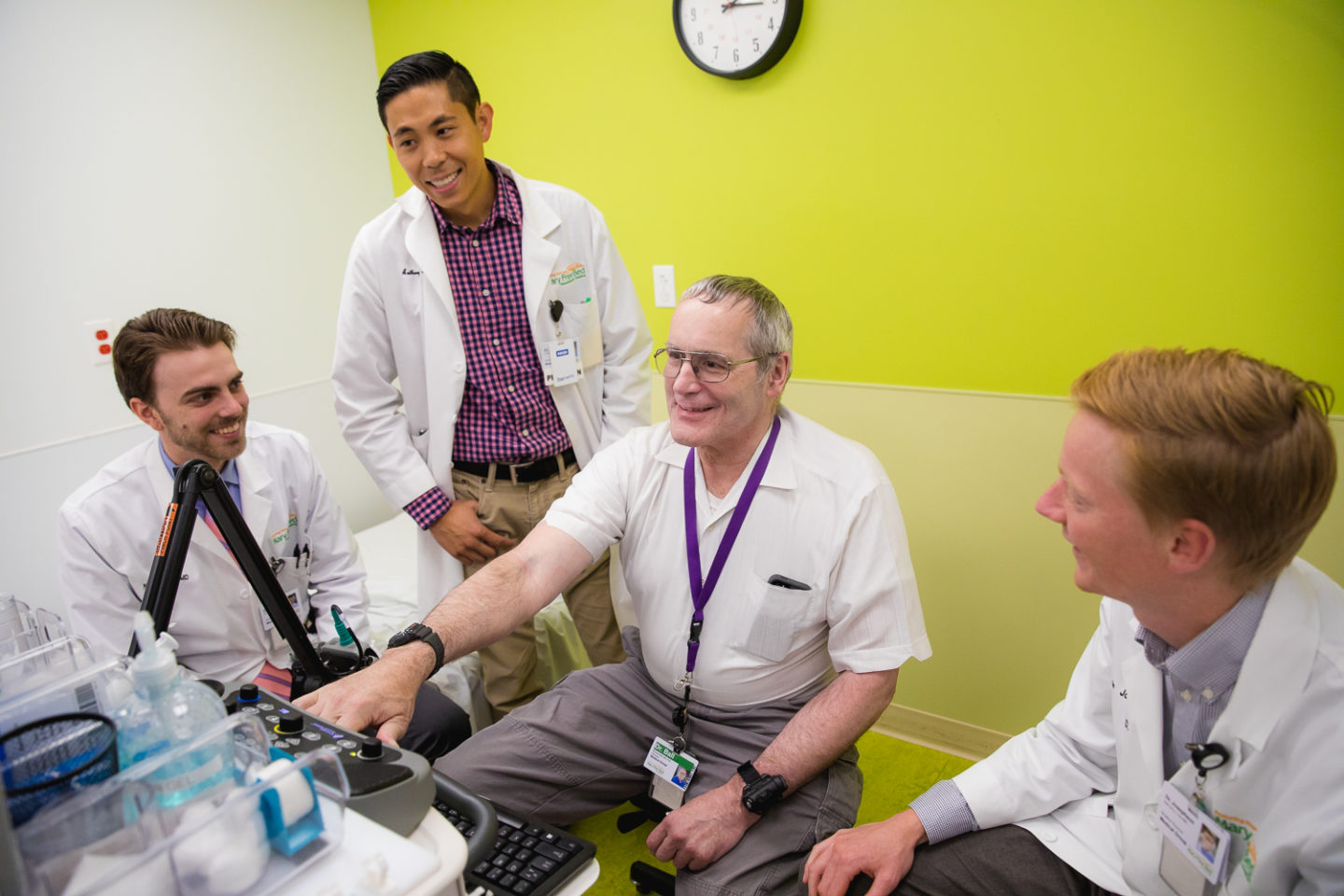Residencies and Fellowships
Mary Free Bed’s mission is to restore hope and freedom to patients through rehabilitation, and that includes preparing the next generation of exceptional clinicians. We provide advanced clinical training in an integrated environment of professional mentorship, clinical excellence, research and education.
We expect our residents and fellows to contribute and effectively implement evidence-based clinical practice. They share their knowledge and expertise with students, fellow clinicians and the patients and families we serve, while exhibiting high ethical standards and professionalism.
Physical Medicine and Rehabilitation:
Physical Medicine + Rehabilitation Residency
Neuropsychology:
Clinical Neuropsychology Residency
Therapy:
Neurologic Occupational Therapy Fellowship
Neurologic Physical Therapy Residency
Orthopedic Physical Therapy Residency
Pediatric Physical Therapy Residency



